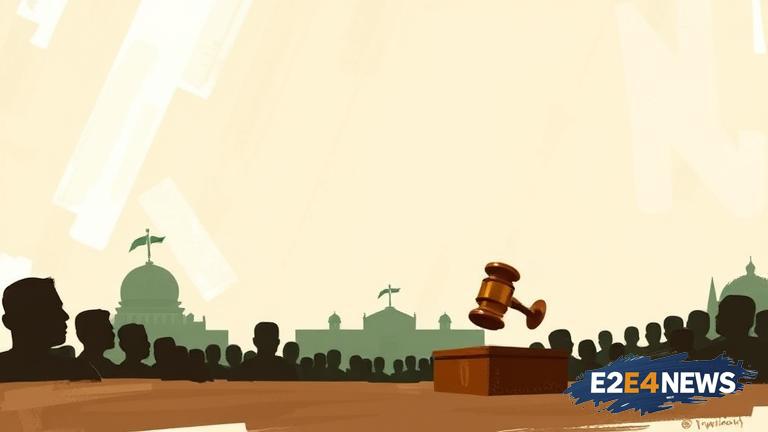The Nigerian constitution, which was enacted in 1999, has been a subject of controversy and debate among scholars, politicians, and the general public. Many have argued that the constitution is outdated and does not reflect the current socio-political and economic realities of the country. The call for a constitutional review has been ongoing, with some arguing that it is necessary to address the country’s numerous challenges, including corruption, insecurity, and economic stagnation. Others have argued that a review of the constitution is not feasible, citing the complexity and cost of the process. Despite the challenges, there have been several attempts to review the constitution, including the 2005 and 2014 constitutional conferences. However, these attempts have been met with resistance from various quarters, including politicians and interest groups. The feasibility of a constitutional review in Nigeria is a complex issue that requires careful consideration of various factors, including the political will, public support, and the role of interest groups. One of the major challenges facing a constitutional review is the lack of political will, as many politicians are hesitant to support a review that may lead to a reduction in their powers or privileges. Additionally, the process of reviewing the constitution is complex and requires a significant amount of resources, including time, money, and expertise. Furthermore, the role of interest groups, including civil society organizations and traditional rulers, is crucial in shaping the outcome of a constitutional review. These groups often have competing interests and agendas, which can make it difficult to achieve a consensus on the key issues. In recent years, there have been renewed calls for a constitutional review, driven in part by the growing demand for greater accountability and transparency in government. The Nigerian government has responded to these calls by establishing a committee to review the constitution and make recommendations for amendments. However, the committee’s work has been slow, and many have expressed frustration with the lack of progress. Despite the challenges, many Nigerians remain optimistic that a constitutional review can help to address the country’s numerous challenges and promote greater stability and prosperity. The review process is expected to be contentious, with different groups and interests vying for influence. The outcome of the review will depend on a variety of factors, including the level of public engagement, the role of interest groups, and the willingness of politicians to support meaningful reforms. Ultimately, a successful constitutional review will require a broad-based consensus and a commitment to putting the interests of the country above those of individual politicians or groups. The Nigerian government must also be willing to listen to the concerns of citizens and to make meaningful changes to the constitution. By doing so, Nigeria can create a more just and equitable society, where the rights of all citizens are protected and promoted. The country’s future depends on its ability to address its current challenges and to create a more stable and prosperous future for all Nigerians.
